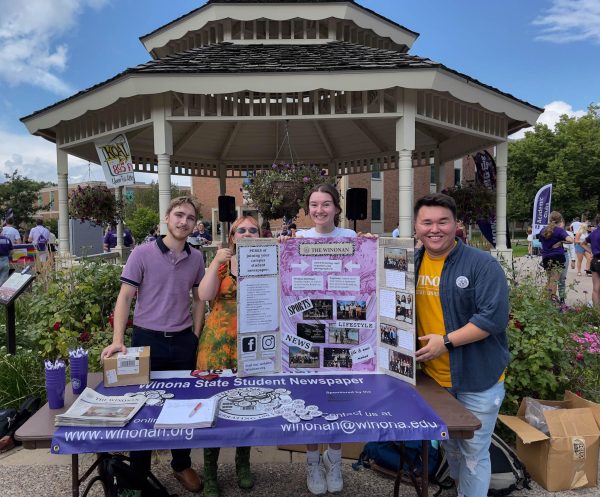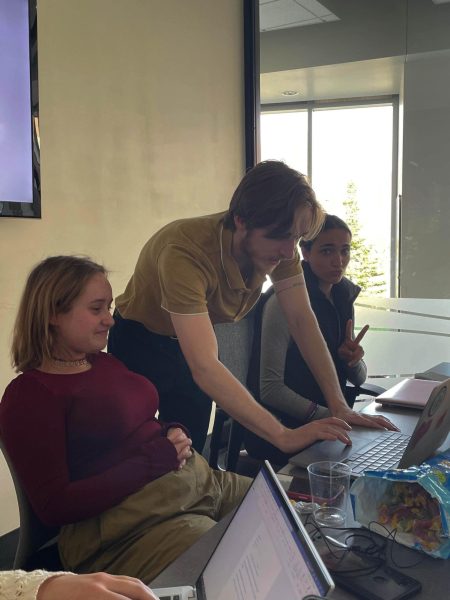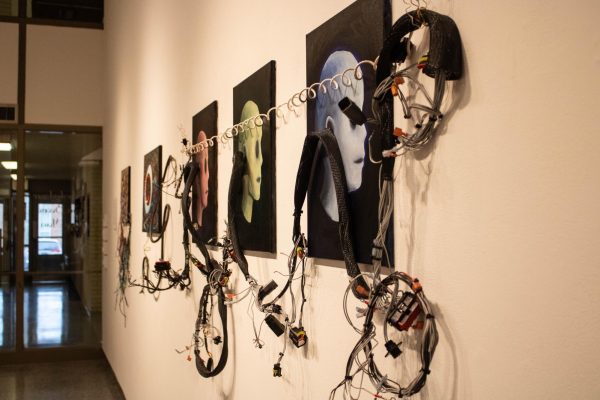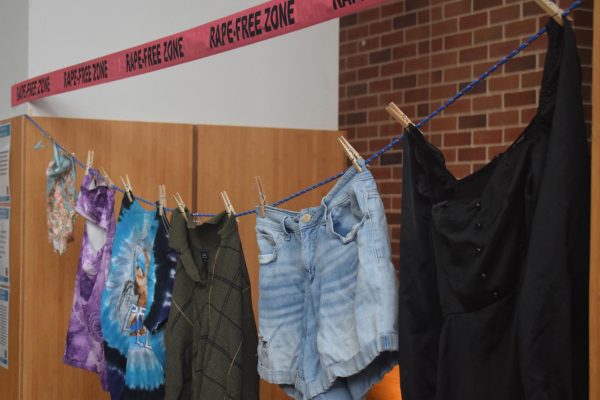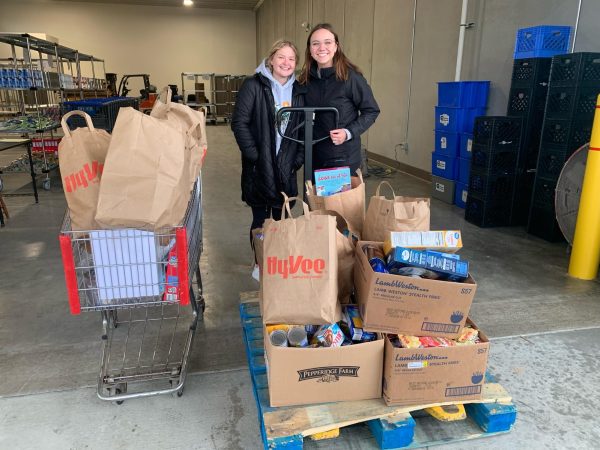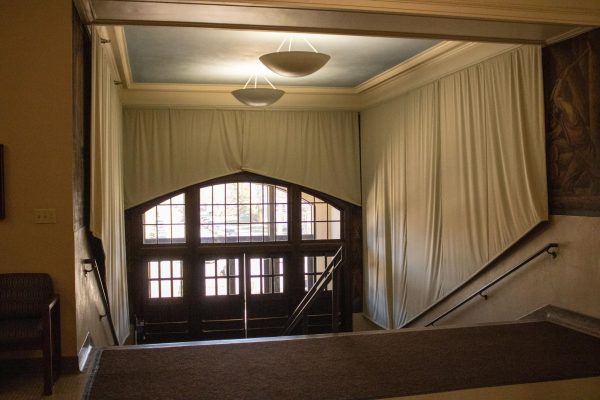Homesickness sparks discussion

September 11, 2019
Held every Wednesday at 3 p.m. in the Integrated Wellness Complex on Winona State University’s campus, Wellness Wednesday strives to create an atmosphere of support and learning on a wide range of topics for students.
For the second week of 2019-20 academic year, Wellness Wednesday covered a common college side effect: homesickness. The session, titled “Tackling Homesickness,” had counseling service staff member Dr. Lynda Brzezinski leading the event and a discussion between students.
“I’ve had students who struggled with homesickness during all of their years at Winona State because they’re so connected to their homes and family,” Brzezinski said. “They’re still successful in school, but they just miss home.”
Nearly a dozen students showed up for the event, as well as Aiden the therapy dog, who roamed about the room during discussion.
Brzezinski started off the event with a showing of a TED talk on the history of homesickness. The video gave information on how homesickness has been transformed from an “illness” that many previously thought you could die of to the modern understanding of it being a nostalgic feeling for one’s home.
The video touched on two main points: homesickness being a well-known and widely felt emotion dating back centuries, and that our current society often treats homesickness with little sensitivity and is seen as a “weak” feeling.
“There’s something beautiful about that type of emotional connection,” Brzezinski said. “It’s normal – it means you miss what brings you comfort and security.”
Conversation opened up with students discussing different ways they dealt with the transition to college as well as how homesickness has affected them. The group was a mix of grade levels from first to fourth year students, which further instilled how homesickness is a feeling that comes and goes no matter how long one is away.
Many brought up that joining activities either brings comfort to them or are reminders of home that help them cope, such as joining a youth group or church, going to the gym and exercising, or decorating their rooms to feel “home-y.”
Nearly all of the group agreed that going to college was the first time they would have been away from their families for a long period of time.
On the flip side to that, students also expressed how visiting home often means missing something else that’s happening at school, leading to the topic of “FOMO,” or “Fear of Missing Out.”
“FOMO happens with college friends, specifically because if you miss something, the next time you’re there to hang out it could be the topic of conversation and then you just have to sit there and think ‘well, oh well, I wasn’t there, so that sucks,’” one student explained.
Finding the balance between home-life, academics and a social life is something that is truly tested throughout the entirety of the college experience. Because of that struggle and pressure, Brzezinski also brought up the topics of depression and anxiety.
“Our [Winona State’s] statistics from 2018 surveys showed that 30% of students at Winona State have been diagnosed with anxiety in their lifetime,” Brzezinski said.
Brzezinski told the group that as a counselor at Winona State she’s had many students struggle with both mental illness and homesickness, and that they can often be intertwined.
“[Homesickness] is not the same as depression, although a lot of symptoms for that are similar to when you’re homesick,” Brzezinski said. “You feel down, it’s hard to concentrate or focus, maybe your sleep is disturbed – but the difference is that if you’re homesick, going back home can make you feel better.”
Brzezinski continued, explaining nearly any significant stressor in life can lead to depression and anxiety, which is why talking about feelings of distress is necessary.
Throughout the several topics touched on during the hour-long event, Brzezinski made sure to give numerous tips on dealing with homesickness and emotional stress in general, including basic ideas like consciously making an effort to keep busy while transitioning to college life, meeting new people, and being patient with yourself.
Once the hour concluded, Aiden the therapy dog gave students his attention in exchange for pats and scratches on his head, revealing another strategy students can utilize to cope: the university’s on-site therapy dogs, Aiden and Winston.



























































